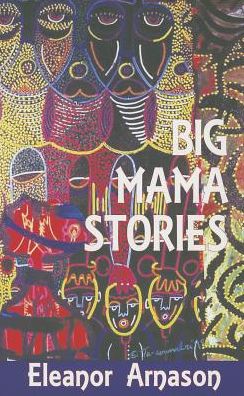I mentioned in a previous column that I’m trying to read more of the James Tiptree Award nominees this year. I have to say, I’m not entirely sure to what extent my tastes and the judges’ quite match up… but it’s proving an interesting experiment.
Both Big Mama Stories and “Heaven Under Earth” were named on the Tiptree Honor List this year. Stylistically, and thematically, they have very different concerns. Reading them back-to-back makes for a rather odd experience: one that heightens their contrasts—and reaffirms how much de Bodard’s short fiction just consistently blows me away.
Possibly I have a bias. I’m okay with that.
Big Mama Stories is a collection of five short fiction pieces by Eleanor Arnason, published by Aqueduct Press. The stories are set in the same continuity and featuring members of the same… family, I suppose is the right word… of beings. Three of these stories were previously published (“Big Ugly Mama and the Zk,” “Big Black Mama and the Tentacle Man,” and “Big Green Mama Falls In Love”) between 2003 and 2006, while “Big Red Mama in Time and Morris, Minnesota,” and “Big Brown Mama and Brer Rabbit” are original to this collection.
The Big Mamas (and the Big Poppas) can cross vast expanses of space and time in a single step. For them, it’s a mere hop from the 24th century to the Cretaceous. Arnason’s stories have the rhythm of a told tale, a tall tale; campfire stories for an interstellar age told with the voice of an American fable. There is something very warm and welcoming—and yes, playful—about these stories: Arnason is clearly having a great deal of fun with her big-hearted, well-meaning, self-educated Big People, and mixes the scientific with the fantastic with a liberal hand. But, much as I enjoyed the stories, they didn’t get inside me and speak to me—rip my guts out—in the way of short fiction that I really admire: they’re essentially gentle, forgiving stories. (Albeit with mythic scope.)
The fundamental American-ness of the voice probably didn’t help with my emotional response to it. It seems I find the folksy, Americana-influenced tone… well, subtly alienating, where the text appears to expect me to find it otherwise.
I also find off-putting the tiny bit of gender-essentialist thinking that crept into “Big Green Mama Falls In Love”: “His new hormones were changing him,” the newly-male-gendered Big Green Poppa thinks to himself: “He hadn’t been this analytic previously, or so interested in taxonomy.”
On the other hand, Arnason’s tone and themes—personal responsibility, growth, responsibility to others, the nature of tricksters—are interesting ones, and the stories here are certainly accomplished. It’s far from their fault that straight afterwards I read “Heaven Under Earth” and thought: Yes. This. THIS is what I want from short fiction.
“Not all lang birds long for the sky,” he says, finally. Not all birds will see the bars of their cages open; nor do they wish to. It’s enough, sometimes, to be reminded of who you are and what you chose.
Its emotional punch is subtle, but it goes deep. “Heaven Under Earth” is a story about roles and constraint—social roles, gender roles, familial roles. Set in a science-fictional world with very few women, where certain men are altered to be able to incubate and nurse children, it possesses too an element of body-horror: for it is by no means clear that the alterations are something the men in question were given the choice to consent to, any more than this world’s few women are allowed to refuse to have their eggs harvested from their ovaries. It is a quiet, intimate story about freedom and restraint, about different ways of relating to oneself and one’s body. Subtle and deft with its imagery, it leaves me pensive, almost haunted.
If you haven’t read it, you should.
Liz Bourke is a cranky person who reads books. Her blog. Her Twitter.










